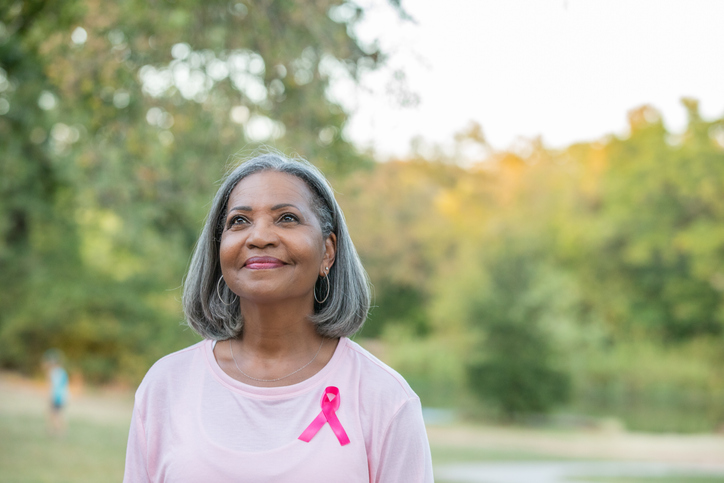
Source: Courtney Hale / Getty
SHE’S HEALIN’ HERSELF: A Series on Black Women and the Art of Collective Healing
“She’s Healin’ Herself” is an ongoing series that delves into the stories of Black women healing through the collective efforts of other Black women and organizations dedicated to our health. This series seeks to highlight how, through love and unity, Black women have led the charge to heal ourselves.
October is Breast Cancer Awareness Month, and Black women should be aware of certain factors impacting our breast health.
Breast cancer incidences in America have risen in the past 40 years — and the disease’s manifestation in our community is stark. An informational piece published by the American Cancer Society in October 2022 specified that while Black women specifically have lower incidence rates, the population is more likely to suffer from more aggressive types of breast cancer.
The harsh reality is more poignant because breast cancer is the leading cause of cancer death for Black women — who still have the highest death rate from the disease compared to women of other races.
Bleakly, “Black women who develop breast cancer are less likely than any other race to be alive five years after their diagnosis, regardless of when their cancer’s discovered or what type it is.”
In perspective, the CDC added that we face a 41% higher death rate from breast cancer than white women.
Regarding the intersection of race and age, the Breast Cancer Research Foundation highlighted another insidious disparity that reared its ugly head, particularly among women under 50. The nonprofit detailed that “while young women have a higher incidence of aggressive cancers, young Black women have double the mortality rate of young white women.”
RELATED CONTENT: “Breast Cancer Awareness Month: 5 Little Known Facts About The Deadly Disease”
Since Black women face different and more harsh realities when battling breast cancer, it’s essential that awareness and education surrounding the disease are not minimized in our community. Down below, read about six Black women-led organizations doing the work to spread awareness, aid patients and support survivors.
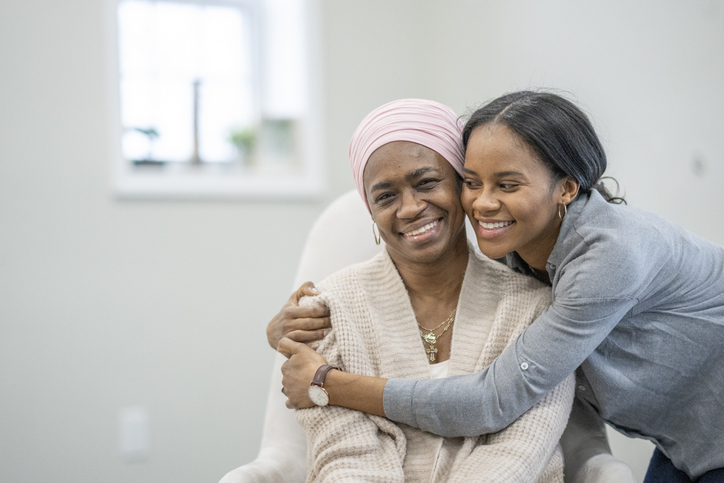
Source: FatCamera / Getty
The Sisters Network Inc.
Founded by four-time survivor and CEO Eubanks Jackson, the Sisters Network describes itself as “the nation’s largest and only national Black breast cancer survivorship organization.” It has over 25 survivor-run chapters and provides awareness, empowerment and financial assistance to those in need because of the disease. Its national slogan, STOP THE SILENCE, is specifically targeted toward encouraging Black people to discuss their familial medical histories, ultimately to save lives.
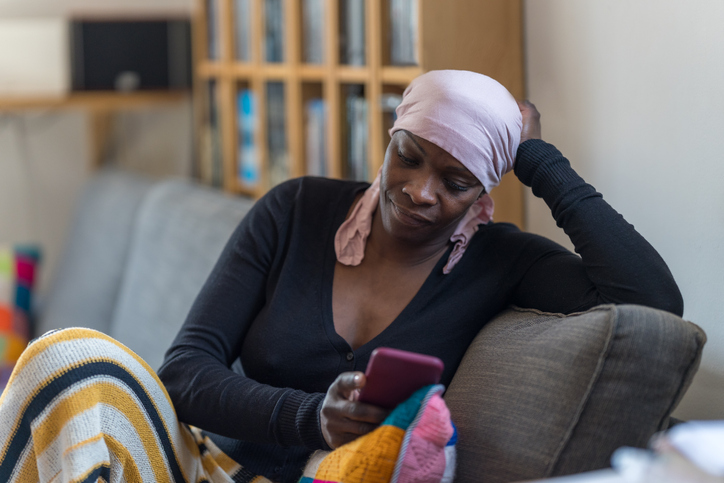
Source: Daniel Llao Calvet / Getty
TOUCH: The Black Breast Cancer Alliance
This organization takes a holistic look at “the constellation of exposures, experiences and lack of science for Black women diagnosed with breast cancer.” In addition to working with patients, survivors and healthcare professionals, TOUCH collaborates with advocacy groups, researchers and pharmaceutical companies to work toward eradicating the disease in the Black community.
Survivor and TOUCH CEO Ricki Farley co-hosts a Facebook Live series every Wednesday at 6 p.m. with breast surgical oncologist Dr. Monique Gary. Titled, The Doctor Is In, the series offers “reliable, retable and real talk about breast cancer.”

Source: Westend61 / Getty
Fight Through Flights
Two Black women created this nonprofit in honor of their late sister, Maria Tambe, who passed away from breast cancer at the tender age of 41. Since Maria loved to jet set, Fight Through Flights provides healing refuges for Black breast cancer patients and survivors through free wellness retreats and travel experiences. The organization also supports Black women and survivors with free mental health, nutrition and fitness resources to promote all-around wellness and healing.
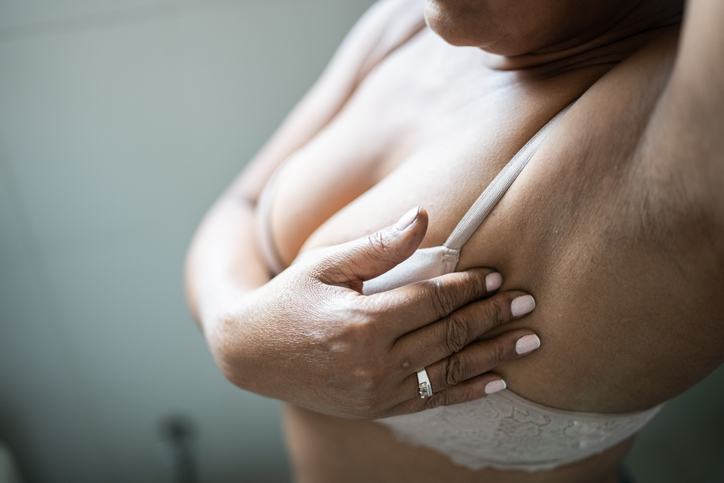
Source: FG Trade / Getty
African American Breast Cancer Alliance (AABCA)
Founded in 1990, the AABCA is a nonprofit that uses a culturally specific and sensitive approach toward addressing Black breast cancer, supporting survivors and spreading awareness. It does so through creating educational materials and advocacy.
“Being there for families, friends, and community is an African American tradition. Being there also means you become knowledgeable about diseases like breast cancer. It means that you take charge of your health and take care of your life,” noted the organization.
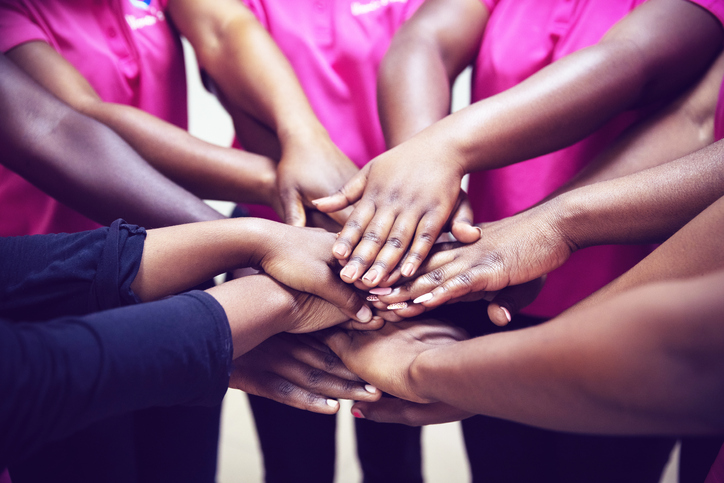
Source: GCShutter / Getty
Carrie’s Touch
Rev. Dr. Tammie Denyse, co-founder and president, is a survivor whose faith drives her to offer Black breast cancer support for those affected within the U.S. and globally. Some of the ways Carrie’s Touch does so is through various community-building initiatives, helping provide basic needs, teaching young girls how to do at-home breast exams, and Project SOAR (a research study collecting data on the experiences of those impacted by Black breast cancer).
The nonprofit, named after Dr. Tammie’s mother, is also behind the Survive and Thrive app. The latter is the first of its kind conceptualized and designed by Black, Indigenous Women of Color for survivors of the same racial backgrounds to humanize their experiences and provide support.

Source: Delmaine Donson / Getty
For the Breast of Us
The organization was founded by two passionate Black survivors who hold space, especially for those diagnosed with the disease while still young.
For the Breast of Us has a “Breast Cancer Baddies Directory” where users can upload themselves and find community with others, near and far, who’ve had the same breast cancer type, treatment, surgeries, receptor status and other life-altering details.









